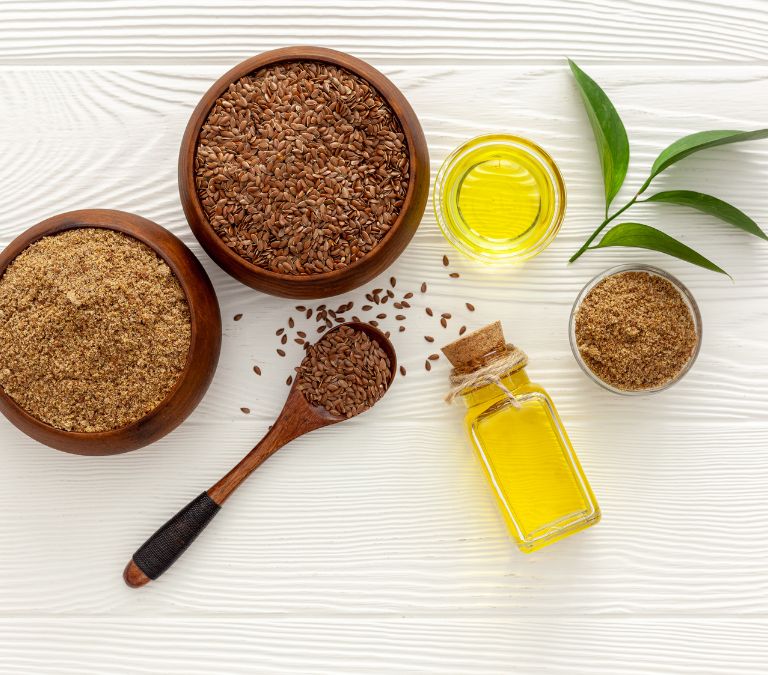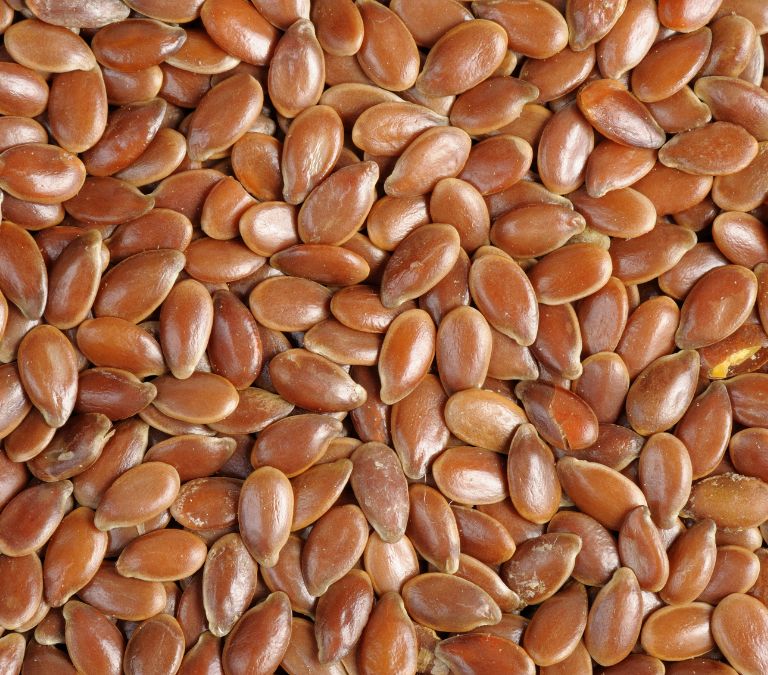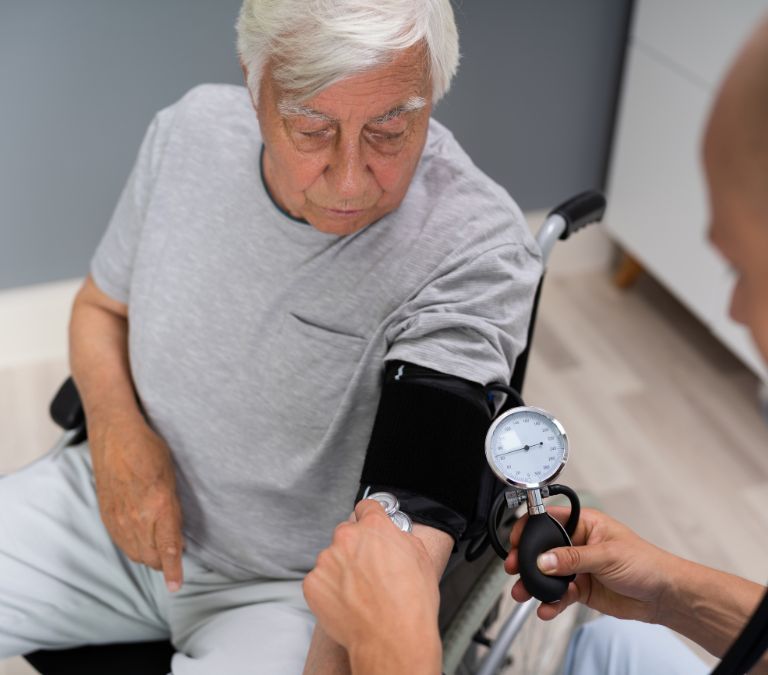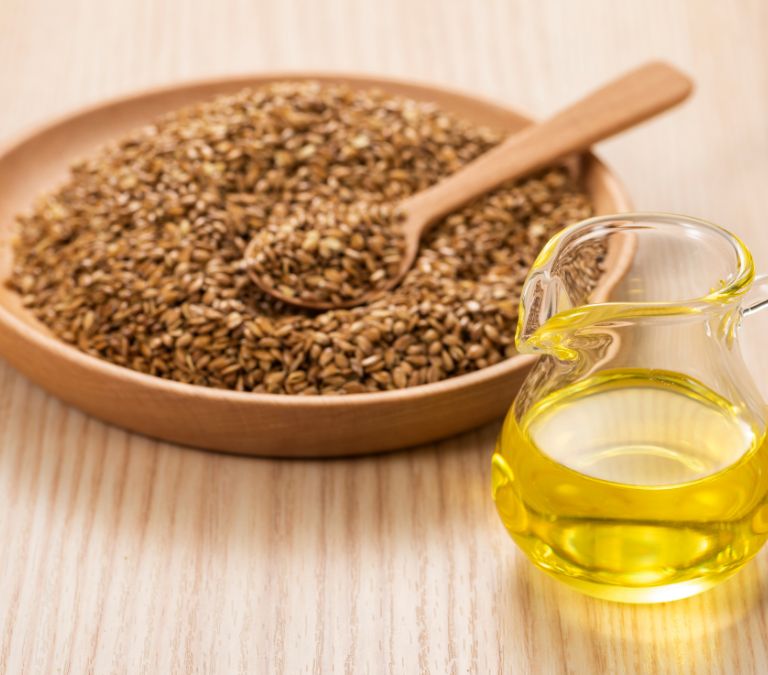The myths flaxseeds, the facts, and how everything adds up
One thing I have always enjoyed doing is sharing my experiences and trying to help others go through the same experience with ease.
On July 4th last year, I flew to Utah to celebrate Independence Day with my eldest son Finn. While on the plane, I realized my wristwatch had stopped working, and because of the large amount of coffee I took before leaving California, I was too pumped to leave it that way. After trying to fix something I knew nothing about for about half an hour, I resorted to asking the man sitting next to me.
What amazed me that day wasn’t how short it took him to repair the broken wristwatch; it was how he did it. He took the watch, stared at it for a few seconds, then tapped it gently at the back of his palm.
“Here’s your watch, ma’am. Good as new.”
For something I spent that long trying to fix, he was able to do it in less than a minute just by giving it a little tap!
Now back to the topic of discussion, many menopausal women today would have had it easier if more experienced women like me had told them what to expect and the best and safest ways to deal with the issues of menopausal symptoms.
Just like other significant natural changes in the body, the period of menopause comes with its symptoms and side effects. Yes, you can bid farewell to periods and sanitary pads but be ready to welcome symptoms like night sweats and the ever-discomforting hot flashes.
As the world evolves, women in today’s society are constantly searching for ways to relieve or, at least, reduce the effects of menopause on them. For this reason, more treatment options have been made available to deal with these symptoms.
Most doctors in the United States are keen on introducing hormone therapy as the most effective treatment for menopausal symptoms. While this claim remains undisputed, other treatment options have also proven effective in helping with this lingering problem.
Some treatment options include supplements, lifestyle and diet changes, and surgery. However, the use of flaxseeds and their products among menopausal women today has risen rapidly globally. For this reason, I went further to unravel the secret behind this traditional food and why it always appears whenever women’s reproductive health is mentioned.
Flaxseeds and Its Uses

I’d find it quite difficult to believe if you said you’ve never heard of flaxseeds. Somehow, these seeds are now in our bread, crackers, your favorite waffles, and even in chicken feed.
Now that we know the foods made from flaxseed, let’s look at why we need them. Why do we have flaxseeds in our food and chicken feed? Why do we add flaxseeds to more products in the United States and Canada, and why does it even have a council? Yes, the Flax Council.
Flaxseeds aren’t just regular small brown seeds used as supplements; they are “supercarriers.” Flaxseeds can help reduce blood pressure, protect the bones, shield you from certain cancers, and help with diabetes and many diseases related to the heart. With these benefits, we can all agree that flaxseeds deserve the name “supercarriers.”
Nutritional Value of Flaxseeds
As menopausal women, the least we could do for ourselves is provide our bodies with optimal nutrition.
Earlier, I outlined some important ways flax helps us maintain good health. Of the vast nutritional contents of flaxseeds, three things are found in abundance that makes these little seeds very important.
Omega-3 Essential Fatty Acids
Also known as good fats, the body cannot make omega-3 fatty acids. Because they are essential fats, the body needs them to survive and function properly. Luckily enough, flaxseeds have an abundant amount of these essential fats in them. For this reason, flaxseeds are added to food products and used as supplements.
Fiber
With the fiber content of flaxseeds, we can be offered a level of protection against serious diseases like bowel cancer, diabetes, and heart disease. Flaxseeds contain both soluble and insoluble fiber.
Lignans
I read somewhere that flaxseeds contain up to 100 times more lignans than any other plant food on earth. One thing that makes lignan extra special to us as menopausal women are its ability to deal with many symptoms associated with menopause, like hot flashes and night sweats. With the availability of plant estrogen, lignans can be very useful for menopausal women like me and you.
“I wasn’t ready for HRT”
I got into menopause at 52, and my symptoms were quiet. While hot flashes and night sweats were quite normal for me, some other women go through the most during menopause. By the most, I’m talking of heart diseases, breast cancer, and even osteoporosis.
I lived with the routine hot flashes for a while, and then I couldn’t bear it for one more second. With the feeling of discomfort being amplified by the high deficiency of estrogen in my body, I went to the clinic to seek answers and solutions.
Firstly, it is good we understand that different women react differently to menopause, and treatment often varies. It means menopause is not a “one size fits all scheme.” In the clinic, I was enlightened, and I did get the answers I sought.
The only problem was that I wasn’t ready for hormone replacement therapy (HRT). HRT remains the most effective option for menopausal treatment, but I wasn’t ready for it. With that, I went further into other treatment options. Of these treatment options, I adopted diet changes. That day (March 19th, 2013), they introduced the nutritional value of flaxseed to me.
Menopause and Flaxseeds

If taken the right way, flaxseed is an excellent nutritional powerhouse. However, many menopausal women all over the world today are intentional about the usage of flaxseeds. In the United States, women at the perimenopausal stage of their lives often take flaxseeds intending to alleviate symptoms associated with menopause.
A study conducted on menopause observed that flaxseed could help to some extent, to reduce the symptoms of menopause. However, it is important to know that only ground flaxseed has been proven to significantly affect menopausal women.
It means that flaxseed oil has no scientific and medical basis in helping with menopausal symptoms.
Studies show that mild menopausal symptoms like the signature hot flashes and night sweats are improved by taking 40 grams of flaxseeds daily. The effectiveness of flaxseeds has even been compared to that of hormone therapy.
With these studies, it is important to know that some other studies today have gone against the effectiveness of flaxseeds in helping to improve symptoms of menopause.
Effectiveness of Flaxseeds: What Does Science Say?
While some studies have proven the effectiveness of flaxseeds in menopausal symptoms, others have contradicted these claims. Regardless, we cannot completely ignore the power of flaxseeds in helping cope with menopause symptoms.
In women, the ovaries are the main producers of the estrogen hormone. As we get to menopause, the ovaries cease to function, and as such, estrogen becomes deficient. The abrupt drop in estrogen levels is the major cause of many symptoms we feel today. Many treatment options for menopausal symptoms focus on raising the body’s estrogen levels. Some studies have shown that flaxseeds are great at helping to raise estrogen levels, while others have strongly opposed these claims.
Between 2001 and 2020, several scientific studies have been carried out to determine the effectiveness of flax during menopause. These studies show that flax seeds were effective enough in raising estrogen and progesterone levels.
While soy has long been used in helping to increase estrogen levels in menopausal women, a study carried out in 2004 has suggested that flaxseeds are better at doing this job.
10 Awesome Benefits of Flaxseeds to Menopausal Women
Here, I have outlined and explained 10 benefits of flaxseeds to menopausal women.
Can Help Prevent Certain Cancers
Menopausal women are more vulnerable to developing breast cancer than women of reproductive ages.
However, studies have shown that flaxseed intake can help us lower the risk of breast cancer development.
Due to the high content of lignans in flaxseeds, flaxseeds can help protect against cancer.
Lignans are proven to possess cancer-fighting abilities; lucky enough, flaxseeds have more than 500 times more lignans than any other plant food on earth.
It may help with blood pressure

As the estrogen levels drop, the blood pressure can go through a dangerous increase, and this can cause terminal damage to the body. Research has shown that consuming flaxseeds as supplements can help to lower blood pressure significantly.
Scientific research has shown that taking 30 grams of flaxseeds daily for 12 weeks can help reduce blood pressure in menopausal women with really high levels.
Weight Gain Management
On getting to menopause, many women become less active, and this can cause a significant increase in Body Mass Index.
During my reproductive years, I had no problem eating as much as my stomach permits, but since getting to menopause, one extra burger and the pointer are already moving further on the scale.
As an added advantage, flaxseeds can help you manage your weight effectively. Due to the fiber content of flaxseeds, digestion can be slowed, and your feeling of fullness becomes amplified. Flaxseeds are very important if you are determined to lose some weight. Research conducted on flaxseeds has proven that these tiny seeds can cause a significant decrease in belly fat and Body Mass Index.
Nutrient Powerhouse
Without any doubt, flaxseeds are one of the most nutritious crops on the planet. Earlier, I described flaxseeds as supercarriers, and this remains true. In one tablespoon of flaxseed, you get nutrients like selenium, zinc, copper, folate, iron, manganese, phosphorus, magnesium, carbs, etc., all up to 7 grams.
During menopause, our body must get adequate nutrients, and flaxseeds have proven to be excellent sources of these major nutrients. If you don’t get these essential nutrients, you might increase your risk of osteoporosis and diseases caused by nutrient deficiency.
By taking flaxseeds in controlled amounts, you are helping yourself get ahead of symptoms to come.
Can Help Lower Cholesterol Levels
Women in menopause are more likely to have an increased level of total cholesterol. The increase in cholesterol can lead to an increase in low-density proteins and, in turn, a decrease in high-density lipoprotein, which can be hazardous to the body.
Studies have shown that eating 4 teaspoons of flaxseed could decrease the amount of low-density lipoprotein by more than 15%.
May Help Regulate Blood Sugar
Problems with blood sugar may arise during menopause which can be, most times, detrimental. However, flaxseeds may help prevent insulin resistance and, in turn, reduce blood sugar levels. According to research, the fiber content of flaxseed may be the reason for this regulating effect. Soluble fiber helps slow down the blood’s ability to absorb sugar. This way, blood sugar levels are reduced.
Flaxseed oil is not used to reduce blood sugar and other areas because it lacks fiber, a distinctive content of flaxseed.
High Content of Omega-3 Fatty Acids
Besides the physical pains experienced during menopause, you may also experience emotional and psychological effects.
Research has proven that omega-3 fatty acids can help deal with psychological and depressive symptoms felt during menopause. Not only do these fatty acids help with psychological problems, but they also help with heart problems.
Alpha-linolenic acid, omega-3 acid, can help prevent cholesterol from clogging your heart’s blood vessels. This way, diseases related to the heart can be effectively managed or, better still, duly prevented.
Hot Flashes
Being the primary symptom experienced during menopause, it makes perfect sense flaxseeds can help manage hot flashes. A study conducted in 2007 reports that taking 2 tablespoons of ground flaxseed twice will help reduce the intensity of hot flashes by more than 50%.
Women who take controlled doses of flaxseeds have noticed and reported a significant difference in less than 2 weeks of intake.
However, it is important to know that women react differently to menopause, and as such, the effectiveness of flaxseeds can be more pronounced in some women than in others.
Inflammation
Flaxseeds can help reduce inflammations caused by complications relating to menopause. In this situation, flaxseeds can block the release of some pro-inflammatory agents. This mechanism doesn’t just reduce inflammation; it also helps prevent strokes and diseases of the heart and cardiovascular system.
Excellent Source of Fiber
Flaxseeds possess fiber in large quantities and, as such, are excellent fiber supplements.
The fiber content of flaxseeds can be very useful in helping to normalize bowel movements and general bowel health. The fiber also helps lower cholesterol levels, achieve a healthy weight, and regulate blood sugar levels.
FAQs Regarding Flaxseeds
Here are the most common questions asked regarding the use of flaxseeds during menopause.
Does flaxseed increase estrogen levels?
While flaxseed has been described frequently as a powerhouse for nutrients, it is important to know that flaxseed hasn’t been entirely proven to increase estrogen levels. From the studies carried out, it is observed that different women reacted differently to flaxseeds. For some women, the estrogen and progesterone levels went higher, while there were zero changes in other women. For this reason, it is important to make adequate consultations with your doctor before including flax seeds in your diet.
Are there any side effects of consuming flaxseeds?
Yes, flaxseeds can sometimes come with side effects.
Generally, flaxseed is safe when taken at normal doses. However, flaxseed’s high soluble fiber content can trigger diseases as severe as diarrhea and bloat. Some other side effects of flaxseeds taken at normal doses include gas and cramping.
When flaxseed is taken with inadequate water, it can cause convulsion, stiffness, and in rare events, bowel obstruction. Sometimes, ground flaxseed can react to cause problems relating to inflammation and problems related to cholesterol levels.
As a precaution, ensure you do not take an overdose, as too much fiber can be harmful.
One thing we do not want is to add to the problems of menopause from medications and foods that are meant to help us manage them. Due to the severity of these side effects, you should not take flaxseed without approval or a prescription from your doctor.
Can flaxseeds react to other medications in my body?
Yes, flaxseeds interact with other medicines and supplements already taken into the body. It will help if you talk to your doctor before taking flaxseed.
When flaxseed is taken with other medications, it can alter the normal mechanisms of the drug. Flaxseed is also known to interact negatively with drugs taken for diabetes, cholesterol, and blood pressure. In addition, flaxseeds can react badly to hormone replacement therapy and other hormonal treatments.
What is the standard dosage of flaxseed?
Currently, there isn’t any standard dose for administering flaxseed. However, studies have shown that 40 grams of flaxseed have been used for managing menopausal symptoms of low severity, while 30 grams have been used for people with high cholesterol levels. Irrespective of the plot or circumstance, ensure you speak to a doctor before taking it into the body.
My Menopause Journey and Flaxseed’s Role
I have always hated clinics and everything related to medicine. But when menopause came, I couldn’t run away from doctors’ appointments and medications for my symptoms.
For many women like us, menopause tends to remind us of how old we have gotten and how to prepare for retirement. When menopause came, I was at the peak of my career and wasn’t ready to back down. With that, I was determined to get rid of every discomfort of my mid-age.
Getting to the clinic, I expected more needles and knives, but the first solution my doctor gave to me was lifestyle changes. By lifestyle changes, I mean more exercise, more vegetables, and less alcohol. I quickly adopted lifestyle changes, and in less than 6 weeks, I realized how good menopause could be with the right management plans.
I took more vegetables and less coffee and began to include flaxseeds in my meal. After a month of regular exercise and more vegetables, my hot flashes became less frequent with decreased severity. The nutritional benefits I got from using flaxseeds and other leafy greens made my perimenopausal journey smooth with fewer complications.
For this reason, I would strongly advise that you adopt the same procedures I did during the peak of my menopausal symptoms. If you don’t feel comfortable with hormone therapy or want to try out other options, then lifestyle changes and the inclusion of flaxseed in your diet will be very beneficial in getting significant improvement in your general reproductive health.
Some women go through smooth transitions even without taking any form of medication. Some other women go through the most. As you approach menopause, regular visits to the clinic are important and strongly advised.
Using Flaxseeds
Many food products in the market today have flaxseed in them. While this is very plausible, the amount of flaxseed is often negligible. For this reason, adding it yourself to your diet is essential. You can get the seeds, grind them and dry them to be used later.
In your salads, yogurt, and oatmeal, you should sprinkle controlled amounts of flaxseeds to serve as supplements. Because I’m not too fond of the crunchiness I feel when adding whole flaxseeds to my diet, I opted for grinding, and this way, my diet remains crunch-free.
As you introduce flaxseeds to your daily meals, you mustn’t abuse them, as an overdose will certainly lead to side effects just like the ones we discussed at the early stage of this article.
Conclusion
Menopause is the start of an exciting new phase of life, and it is high time we as women begin to take control of it and not see it as the body’s way of communicating retirement.







